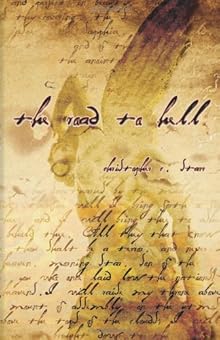Buy Now @ Amazon Kindle
Genre - Religious Fantasy
Rating - PG13
More details about the book
Connect with Christopher C Starr on Twitter
Website http://christophercstarr.net/
Page 99 is a big page for Lucifer in The Road to Hell. His existence up to
this point has really been a game of cause-and-effect whose consequences become
exponentially worse: angels are born because of his actions. Angels die because
of them too. Lucifer makes a legitimate mistake that he escalates into utter
defiance because he lost faith in God the Father. He thought the Father had
left him when he was only being punished.
By the time we get to page 99, Lucifer has come
full circle: his mistake has been punished and forgiven, and he’s brought back
into the cadre of angels. But things are different now and they can never be
the same. There are new angels with new purposes—where Lucifer was once the one
and only angel, now he is one of many.
And as he has gained in power, he has also gained in responsibility.
Lucifer has a part to play whether he likes it or not. The other angels attack
him, make him burn for two reasons: first, they need his light and heat to
fulfill the Father’s new mission; and second, Lucifer has to be reminded of the
penalty of disobedience.
This was a tough piece for me to write because
it is such a transformative moment that is both brutal and beautiful in its
execution. Lucifer has to burn. Fire is part of him, part of his character both
in this book and broader society. He has to embrace that facet of himself.
Moreover, fire symbolizes destruction in this story—its presence and intensity
represent Lucifer’s rage. As long as it is fed, fire will burn and the more
fuel you pour on it, the larger it gets. We had to see that idea. We had to see
Lucifer continue to grow angrier and angrier and we had to point that anger at
his peers before it is directed at the Father. At this point he’s still scared
of God.
This scene also typifies my approach to
Lucifer as a character and his motivations. I didn’t want to maintain the same
clichéd approach that has him angry at some slight. I wanted to make him
furious for reasons we could all understand. I wanted him to sow the seeds of
doubt among the other angels, to give them a catalyst for rebellion (remember,
we have make an argument for 1/3 of all the angels to rebel) but I felt that
Lucifer’s motivations had to be fueled by something else. Loss. Separation. Obsession.
Revenge. It is his continued anger at his separation from the Father—either
physical by being exiled or emotional through God’s love for the other
angels—that propels all his actions. This also gives us a rationale for why an
exile in Hell is a worse punishment than death.
On page 99, we are seeing Lucifer in the
point of no return. Everything he does after this confirm his fate. His rage at
his circumstances, at the actions of others as a consequence of his own—these
things fuel a beast that cannot be contained. He is reborn on page 99 but we
are seeing the birth of Satan.
This is the point in the story where
Lucifer the character became really fun to write. The first 98 pages he’s
discovering what he’s capable of; after page 99, he defines what he’s willing
to do to get what he wants and acts on it. And it’s Lucifer, it’s Satan, he
gets to be as vile, foul and wicked as my imagination will allow. That, my
friends, is absolute joy.


No comments:
Post a Comment